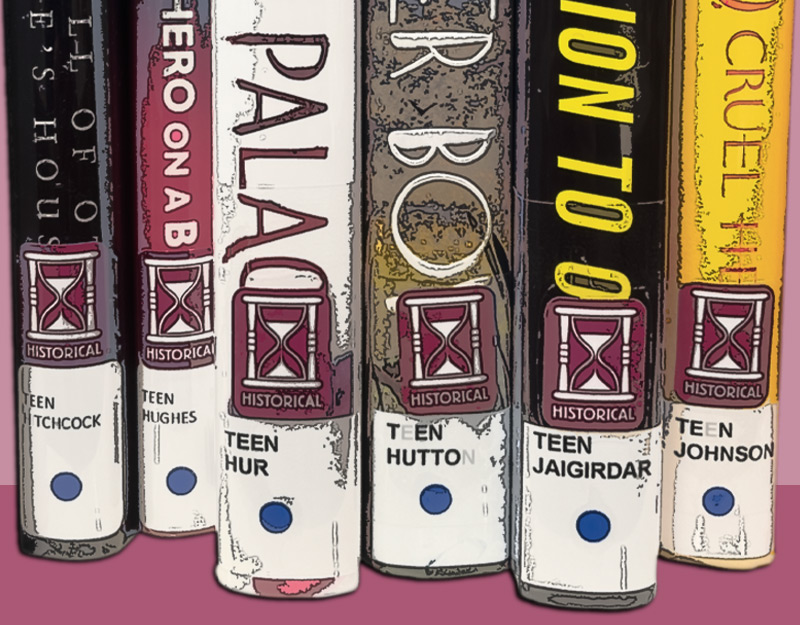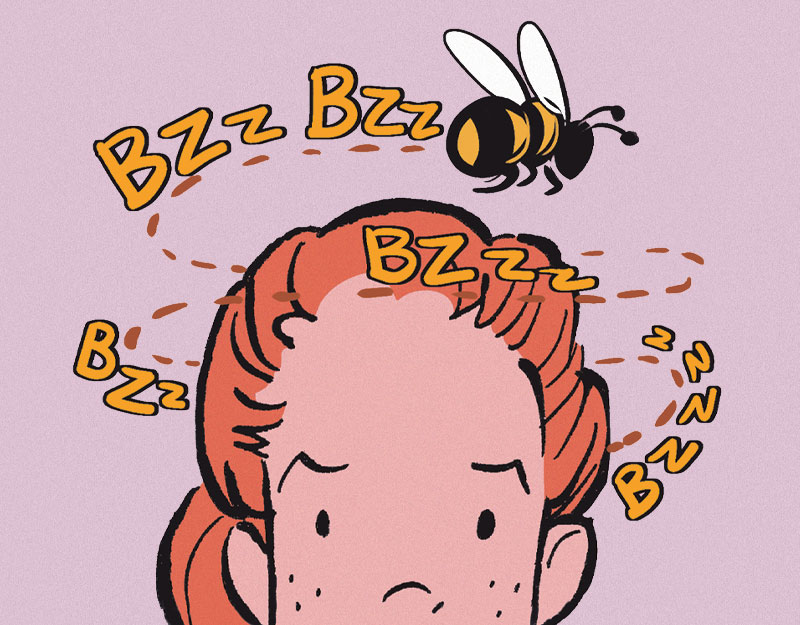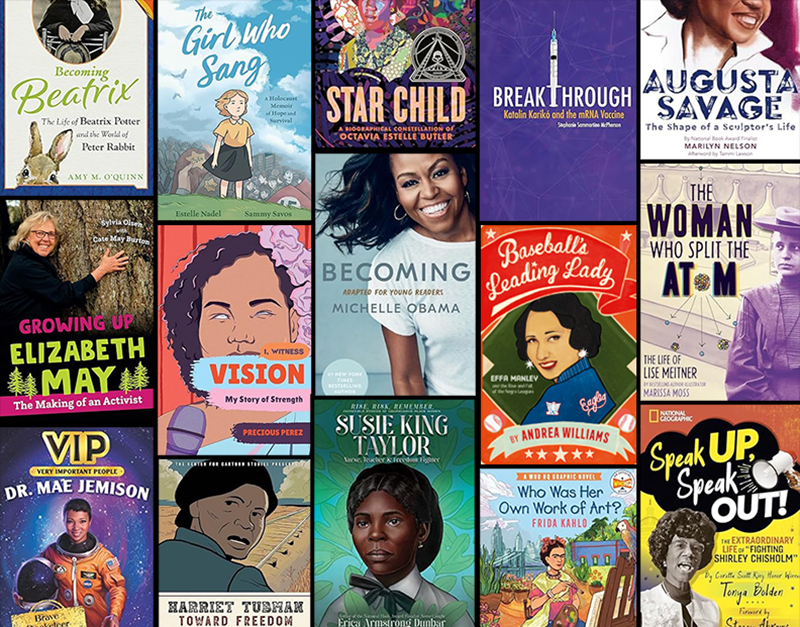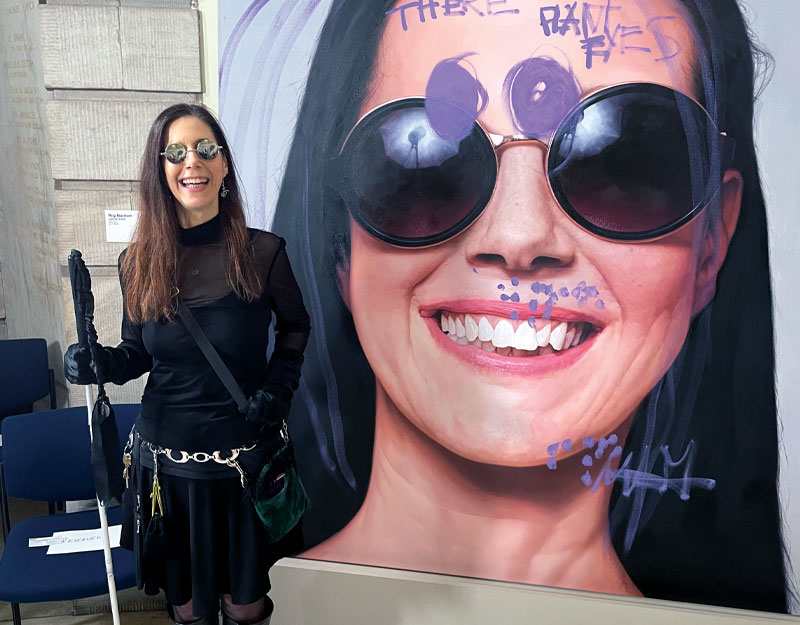What’s In a Name? Diversity and Discrimination in YA Lit
An interesting thing happened at TLA. I was waiting in line when a fellow librarian walked into the Simon and Schuster booth and was reading the backs of books to learn more about them. This person picked up the book PANIC by Sharon Draper. She started to read the back which begins, “Diamond and Mercedes . . . “
This librarian made what can only be described as an ick face and put the book down. She then went on a little rant about people naming book characters ridiculous names and why couldn’t they just be named Mary or something.
Here’s the thing- Sharon Draper is an amazing author. She also happens to be an African American author who writes about black characters. And in Panic, those characters happen to be named Mercedes and Diamond.
Several months ago, there was a segment on NPR where they were talking about names in the black community. One mother called in and said that she had purposely given her son the whitest name she could think of because although their heritage was important to her, she wanted to make sure that her son wasn’t being pre-judged unfairly on college admittance and job applications based solely on his name. As much as we as a society don’t like to admit it, the truth is, when some people see a name and judge it to be “ethnic”, it can and will cause discrimination to happen.
And I felt like that was what I was seeing as I saw this librarian reject a book based solely on the character’s names.
ADVERTISEMENT
ADVERTISEMENT
“A 2004 study showed that resumes with recognizably African-American names were twice as likely to be ignored as other resumes. Black job seekers with advanced degrees have reported removing any indication of race from their resume just to get a shot at job.” – Black Job-Seekers Hide Race for Corporate America, NPR
Christie’s note: I currently work with predominately Latino/Hispanic teens, and have worked in other libraries where it’s been a mix of African American & Hispanic. We as a society like to think that discrimination is a place of the past, and that we are beyond the actions and thoughts of the Civil Rights Movement. We’re not. When teens and adults have to worry about DWB (driving while black/brown), when the feminist movement cannot encompass all women, when panels of “power YA authors” are all white male authors, we know there is still a lot of work to be done. As teen specialists, it is our job to be on the offensive for all tweens and teens.
See Also: Book Riot – We Need Bigger Megaphones for Diversity in KidLit
About Panic: This gripping and chillingly realistic novel from New York Times bestselling author Sharon Draper shows that all it takes is one bad decision for everything to change.
Diamond knows not to get into a car with a stranger.
But what if the stranger is well-dressed and handsome? On his way to meet his wife and daughter? And casting a movie that very night—a movie in need of a star dancer? What then?
Then Diamond might make the wrong decision.
It’s a nightmare come true: Diamond Landers has been kidnapped. She was at the mall with a friend, alone for only a few brief minutes—and now she’s being held captive, forced to endure horrors beyond what she ever could have dreamed, while her family and friends experience their own torments and wait desperately for any bit of news.
From New York Times bestselling author Sharon Draper, this is a riveting exploration of power: how quickly we can lose it—and how we can take it back. (from Goodreads)
Filed under: Diversity
About Karen Jensen, MLS
Karen Jensen has been a Teen Services Librarian for almost 30 years. She created TLT in 2011 and is the co-editor of The Whole Library Handbook: Teen Services with Heather Booth (ALA Editions, 2014).
ADVERTISEMENT
ADVERTISEMENT
SLJ Blog Network
One Star Review, Guess Who? (#202)
This Q&A is Going Exactly As Planned: A Talk with Tao Nyeu About Her Latest Book
Exclusive: Giant Magical Otters Invade New Hex Vet Graphic Novel | News
Parsing Religion in Public Schools
ADVERTISEMENT









Though most people–we included–may be reluctant to engage others in uncomfortable conversations, perhaps we should do it (in a nice way). Imagine this:
Lady: “Why can't she name her character Mary?”
Me: “What book are you looking at? Can I see it? I'm actively working to bring my library in line with ALA's Core Values. One of them is about diversity. I think that book is one I need!”
I'm so glad you shared this. In DC, where 8-year-old Relisha Rudd has been missing for more than a month, I've read some mean-spirited rhetoric about young moms named Shamika who name their kids Relisha. Sigh…among the situations where there should be no room for bigotry: library conventions, while searching for a missing child, and everywhere else. Thanks again for posting.
…and this is why we need to continue to have these difficult conversations. The shades of the Texas landscape are rich in color and culture and I'm so proud of TLA for making diversity a priority in all aspects of the association: membership, policy, and programming. If we keep sharing and learning, we can slowly convert nitwits like the one you encountered because not only do they do they do the profession harm, but they hurt the very constituencies they say they serve, and that has to STOP.